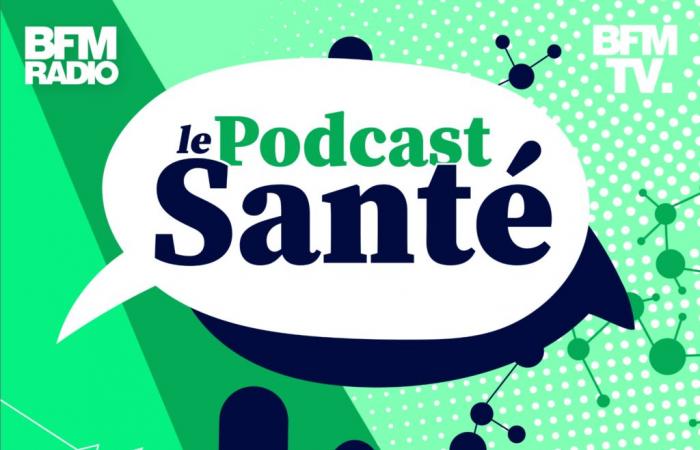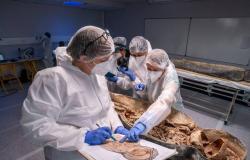Dyslexia, dysorthography, dyscalculia, dyspraxia, dysphasia… These language and learning disorders affect nearly 7 million people in France, or around 10% of the French population. Among them, nearly a million children, which corresponds on average to one or two students per class. Despite the frequency of these disorders, their treatment is not always known or adapted. You will hear the testimony of Amandine Robejean, mother of Katelya, 7 and a half years old. Initially, how to diagnose? What are the warning signs? What does support consist of? Catherine Grosmaître, neuropsychologist and head of the Reference Center for Language and Learning Disorders at Necker Hospital, in Paris, and Elodie Bernard, from the start-up Poppins, are the guests of Margaux de Frouville and Alain Ducardonnet.
40,000 deaths each year due to ambient air pollution. Chronic pollution promotes diabetes, obesity and allergies. Margaux de Frouville and Alain Ducardonnet receive Fabien Squinazi, medical biologist.
It was a high-profile trial, which highlighted and made concrete the notion of chemical submission. That of the Mazan rapes, or the ordeal of Gisèle Pelicot, raped by her husband and dozens of men after being drugged. For 10 years, she suffered absences, complained of being exhausted and consulted doctors for gynecological pain, but no one will put into words the horror she suffered. It was ultimately the investigators who revealed to her the attacks of which she was the victim. So what to do when in doubt, what is chemical submission? Who may be affected? Is there a liberation of speech? What assistance exists? To answer these questions Margaux de Frouville and Alain Ducardonnet receive Sandrine Josso, MP in charge of a mission on this subject, and Johanna Rozenblum, clinical psychologist and BFMTV consultant.
Guillaume Robic was 42 years old and had a hectic life when he suffered a stroke. Like the 150,000 stroke victims each year in France, Guillaume had to relearn how to walk, swim, run… So, what is a stroke? How to recognize the first signs for rapid treatment? And above all, how to learn to live again after the accident? Guillaume Robic, author of “A stroke and having to start all over again” and Doctor Philippa Lavallée, neurologist and head of department of the stroke reception and treatment center at Bichat hospital.
Sleep well to recover well to perform well. Athletes have been considering this issue for a long time. Margaux de Frouville and Alain Ducardonnet receive Mathieu Nédélec, doctor in sports sciences at INSEP, ex-physical trainer and co-author of “Sleep better thanks to the secrets of great athletes” published by Vuibert.
When we say illness, we often think of medication. Few of us imagine leaving a consultation without the life-saving prescription, medication, but not only because over the last ten years additional solutions have become essential. The High Authority of Health has given them a name since 2011: INMs. Adapted physical activities, psychotherapies, hypnotherapy, targeted diets, therapeutic education and many others are known, used and acclaimed by the general public. But we must recognize that these INMs still raise questions: plethora of techniques, effectiveness not clearly demonstrated, trained and competent professionals difficult to identify, playground for certain charlatans… What do we mean by INM? What effectiveness has been demonstrated? Who should I turn to to benefit from it? What does the science say and have the doubts spurred the research? The answers of Professor Grégory Ninot, professor at the University of Montpellier and president of the international society of INMs, president of the Non-pharmacological intervention society (NPIS), professor at the University of Montpellier, deputy director of the Desbrest Institute of epidemiology and public health at INSERM, research fellow at the Montpellier Cancer Institute and Member of the University Institute of France.
Of the 60,000 breast cancers detected in women in 2023, nearly a third were treated by breast removal, mastectomy. However, breast reconstruction still remains little known, or even difficult to access. Specialists estimate the number of women who would like reconstruction but do not do it at 70,000. Doctor Isabelle Sarfati, plastic surgeon and founder of the Sien Institute in Paris, and Professor Michaël Atlan, head of the reconstructive and aesthetic plastic surgery department at Tenon hospital, answer questions from Margaux de Frouville and Alain Ducardonnet .
You have known him for 7 years, he informs us with his letters and colors placed on certain food products. The Nutriscore stood out as a simple translation of their composition. Its goal for the consumer: to understand more easily the nutritional quality of foods and to be able to compare them within the same family. Except that, at the start of the year, it has just undergone a change in its method of calculation. What is the new Nutriscore calculation based on? What foods are affected? Is it understood by consumers? Why are some manufacturers reluctant to adopt it or even leave it? With what consequences? The father of this nutri-score, Professor Serge Hercberg, Professor Emeritus at Sorbonne Paris Nord University and for 18 years president of the PNNS national nutrition and health program, is the guest of Margaux de Frouville and Alain Ducardonnet.
Where did I put the keys? And besides, did I close the door? Who is he again? What was our dinner menu yesterday? If you have ever asked yourself any of these questions or if you ask yourself them regularly, don’t panic, you are not alone. Forgetting would be a desirable phenomenon for our memory, an essential but complex function of our brain. It allows us to integrate, store and restore information to interact with our environment. When we say memory, we first think of memories, but it is also knowledge and know-how. How does memory work? Can we stimulate it? Who are his friends and enemies? When should we be concerned about omissions? To answer these questions Margaux de Frouvillet and Alain Ducardonnet receive Bruno Dubois, professor of neurology, director of the center for Cognitive and Behavioral Diseases at the Salpêtrière Hospital and Florian Manicardi, vice-champion of France in memory 2022, author of the book A champion’s memory from Editions Alisio.






